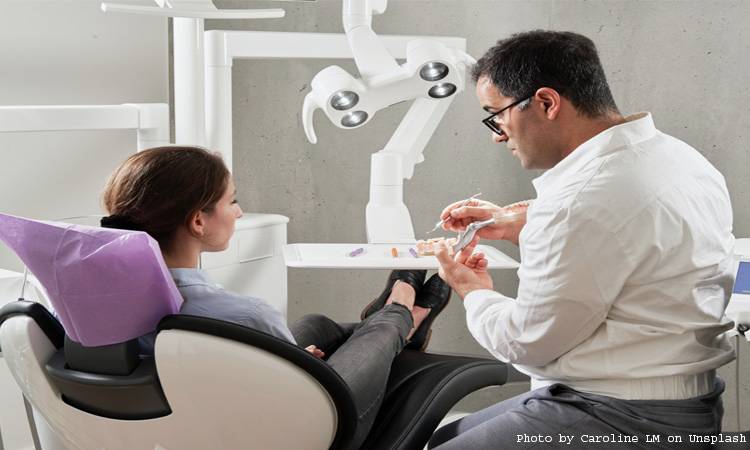
A regular visit to a dental clinic can be entirely based on patients' concerns and queries as it is an integral part of their long-term healthcare.
'Visit your dentist once or twice a year'- now this saying has become a general rule if one wants to maintain excellent oral health. Even if a patient doesn't find a need to pay a visit to a dentist or the patient's mouth is in excellent condition, dental professionals used to stick to this general rule.
Patient's regular visit might not be your surgery day!
A regular visit might not necessarily be a surgery day but can be based on patients' concerns and queries. Therefore, dentists should be prepared to answer all their patients' queries and satisfy them even if they do not require any dental treatment.
Some common questions dental patients ask
Here are some questions that patients can ask from their dentists on their regular visits as it is an integral part of their long-term healthcare and how minimally the dental professional should respond.
When should I get a dental checkup?
According to the basic rule, you should visit the dentist every six months. However, people without any problems can go once a year, while those with dental problems should go and see their dentist every 3 or 4 months. In this way, you can get your teeth cleaned regularly and maintain ideal oral health.
How to maintain good oral hygiene at home?
Brush your teeth with good fluoride toothpaste twice a day, and don't forget to floss along with it at least once. Reduce the high sugar consumption and take a balanced diet with fruits and vegetables. Also, use to avoid tobacco in any form.
How to prevent dental cavities, gum issues, and other problems?
To ensure a healthy mouth, follow a balanced diet and regularly visit the dentist while maintaining your daily oral care with twice-daily brushing and once-daily flossing. Limit yourself from damaging tooth habits and consult the dentist immediately if having persistent headaches, tooth pain, swollen gums, white spots, hot and cold sensitivity, bad breath, etc.
When and why do I feel tooth sensitivity?
Sometimes you can feel pain or have tooth sensitivity with foods or drinks that are hot or cold, sweet, or acidic. Sensitivity occurs when tooth enamel, the tooth's protective layer and cover dentin and pulp, is thinned from repeated exposure to acidity and extreme temperatures. It can also occur due to receding gums or gums displaced from their place, teeth grinding during sleep, chipped or fractured teeth, tooth whitening or any dental treatment. Consult your dentist, and they will examine the affected teeth and recommend better treatment to your sensitive teeth.
How can I enhance or maintain the whiteness of my teeth?
No doubt, white pearly teeth can boost your confidence and make you look beautiful. However, some people have teeth discolouration either from surface stains or internally. Surface stains caused by coffee, tobacco, wine, and pigmented foods can be treated with at-home whitening kits but with a piece of dentist advice or can be professionally done at the dental office regularly. For internal discolouration, consider composite bonding or the veneers to the affected teeth, which can provide a more permanent solution.
When should I go for Dental Implants?
Dental implants can replace missing or weakened teeth and are the ideal alternative. They are permanent solutions and serve as an excellent alternative to dentures for anyone with a healthy mouth and jaw and without any systemic condition.
Should I use mouthwash regularly?
Sometimes patients need mouthwash according to their mouth requirements. There are different kinds of mouthwash. Cosmetic mouthwashes tend to freshen breath and maintain a healthy tooth colour, but they also contain fluoride to help fight cavities. Whereas therapeutic rinses help treat gum inflammation, bleeding and tooth sensitivity.
At what age should I take my child for the first time to the dentist?
Studies show children can develop their first cavities by the time they are two years old, so the dentist recommends the first visit once their first tooth appears or before their first birthday. This helps the dentist catch potential problems affecting your child's overall health and well-being as more teeth grow over time.
When do my child's baby teeth shed?
A child's primary teeth typically begin to fall out to make space for permanent teeth at about age 6. However, sometimes shedding can be delayed by as much as a year. A permanent tooth might drift into the space if a child loses a baby tooth early due to tooth decay or an accident. This results in permanent teeth crowding.

Dr Hiba Shams
The author is an Assistant Editor at Dental News Pakistan and can be reached at hiba@medicalnewsgroup.com.pk

